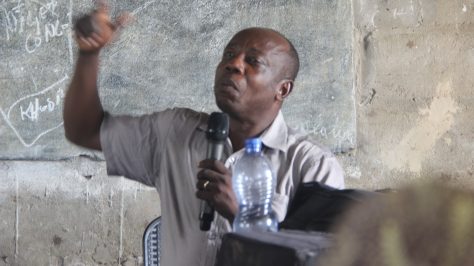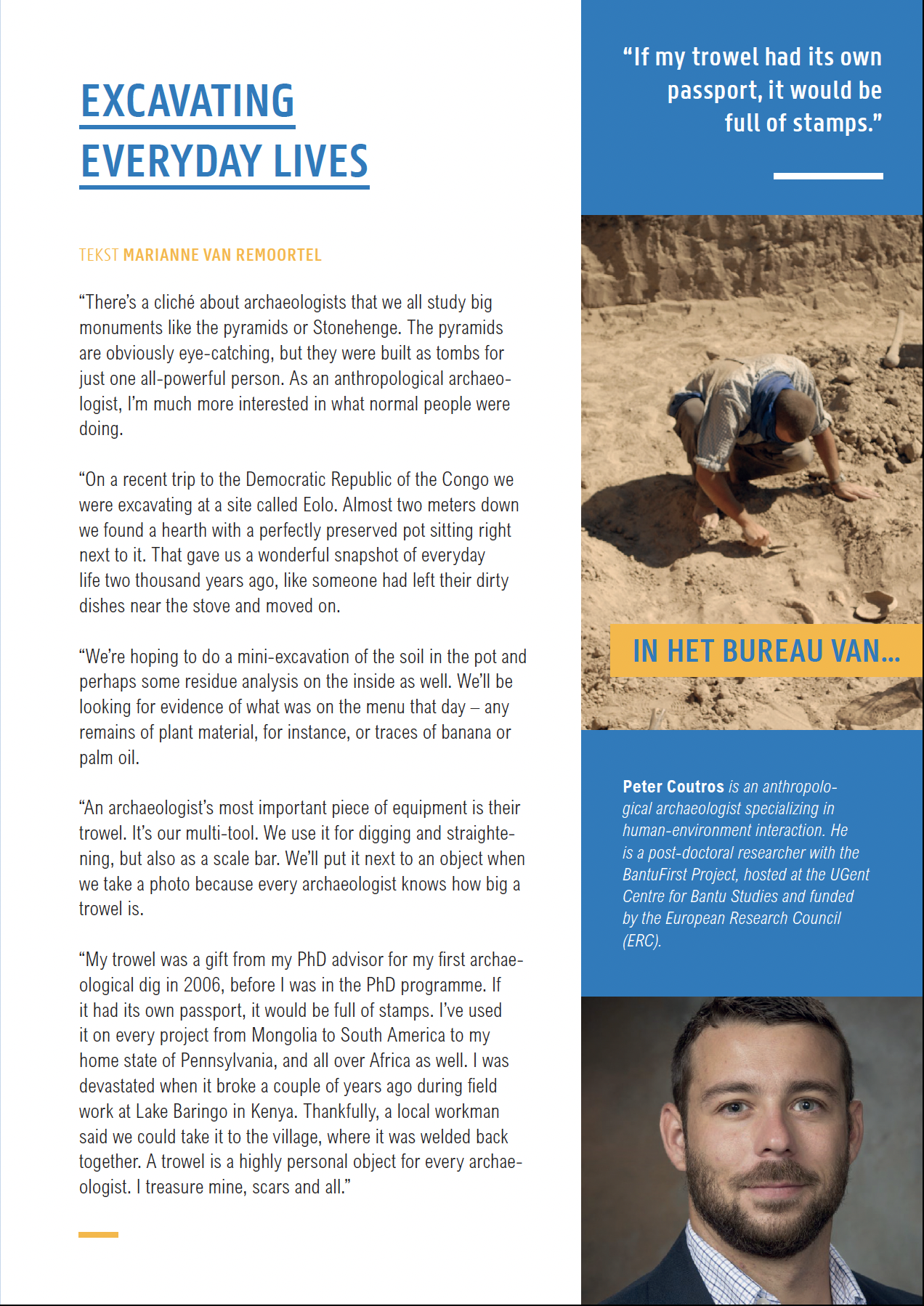The Faculty Magazine Binnenstebuiten interviewed Peter Coutros (BantUGent) about his archaeological research inside and outside the BantuFirst project.
Blog
Stemmen van Afrika reports on BantuFirst research in the DRC
Following the short documentary film which Peter Coutros produced on the archaeological BantuFirst fieldwork he did in the Congo last summer together with Prof. Igor Matonda (UNIKIN), the editorial board of the Dutch web magazine Stemmen van Afrika invited Koen Bostoen to write up a short article in Dutch to provide some scientific background information to explain the goals of that linguistically inspired archaeological research in layman’s terms. The post is available here.
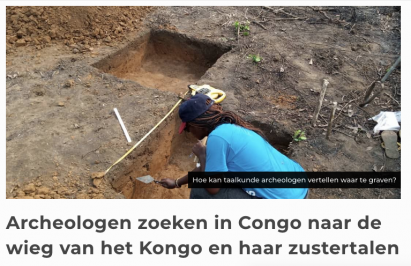
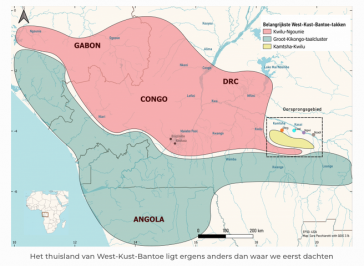
Short film on the BantuFirst archaeological fieldwork mission 2021
Peter Coutros has created a short film on the archaeological BantuFirst fieldwork he carried out in 2021 with Prof. Igor Matonda Sakala (UNIKIN), Isidore Nkanu and Arnaud Mabuaka (IMNC) along the Kwilu, Kasai, Kamtsha and Loange Rivers in the Democratic Republic of the Congo.
Jessamy Doman joins the BantuFirst team
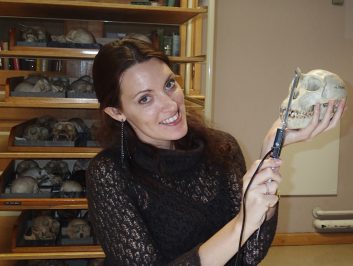
Sara Pacchiarotti, Lorenzo Maselli & Koen Bostoen publish on the historical evolution of vowels in Ngwi
In a new article based on fieldwork data collected in 2019 in Idiofa (DRC) as part of the BantuFirst project, Sara Pacchiarotti, Lorenzo Maselli & Koen Bostoen offer in a new article published in the open access journal Papers in Historical Phonology a phonetic and phonological documentation of two phonemic ‘interior’ vowels and heterosyllabic vowel sequences as well as a historical account of their development in the West-Coastal Bantu language Ngwi. The article is available here.
Sara Pacchiarotti and Koen Bostoen publish on Final Vowel Loss in Lower Kasai Bantu
Sara Pacchiarotti and Koen Bostoen have a new article titled “Final Vowel Loss in Lower Kasai Bantu (drc) as a Contact-Induced Change” out in the open access Journal of Language Contact as part of the BantuFirst project. They present a qualitative and quantitative comparative account of this diachronic sound shift and argue that it rose relatively late in Bantu language history as a contact-induced change and affected adjacent West-Coastal and Central-Western Bantu languages belonging to different phylogenetic clusters.
Koen Bostoen, Peter Coutros & Carina Schlebusch at MPI-Jena workshop on “Archaeology and Language”
Martine Robbeets, Mark Hudson and the Archaeolinguistic Research Group of the Max Planck Institute of the Science of Human History in Jena (Germany) organize a three-day online workshop (November 16-18, 2021) on “Archaeology and Language” involving all the contributors to the forthcoming Oxford Handbook of Archaeology and Language, which they co-edit.
On November 18 (11.30-11.55 am CET), Koen Bostoen (BantUGent), Peter Coutros (BantUGent) & Carina Schlebusch (Department of Evolutionary Biology, Uppsala University) will present a concept paper on the interdisciplinary “Niger-Congo including Bantu” chapter, which they were invited to write for the handbook.
Koen Bostoen talks on the history of Bantu languages [Dutch] at Ghent Centre for Historical Languages
When? November 18, 2021, 8 pm
Where? Monasterium PoortAckere, Oude Houtlei 56, 9000 Gent
The Bantu languages are the largest African language family, both in terms of number of languages and speakers and geographical distribution. About 350 million or about one in three Africans speak one or more of the 500 or so Bantu languages, which stretch from above the equator to South Africa. Swahili, Lingala, Kongo, Luba, Rwanda, Rundi, Ganda, Zulu, Xhosa, and Shona are just some of the best-known Bantu languages. Proto-Bantu is about 5000 years old and is said to have been born in the border area between Nigeria and Cameroon. This lecture is about the reconstruction of this hypothetical ancestral language, about the exceptionally rapid and large-scale diffusion of its daughter languages and about the history and future of the study area.
https://www.historischetalen.be/cursus/twaalf-smaakmakers/
Sara Pacchiarotti & Koen Bostoen have new article out on the West-Coastal Bantu language Ngwi
Based on fieldwork they carried out in 2019 around Idiofa (DRC) as part of the BantuFirst project, Sara Pacchiarotti & Koen Bostoen (BantUGent) have a new article out on the understudied West-Coastal Bantu language Ngwi. The article is titled “The evolution of the noun class system of Ngwi (West-Coastal Bantu, B861, DRC)” and has been published in open access in the third number of the second volume of the Russian journal Language in Africa.
Jean-Pierre Donzo in Ghent for two months of collaborative BantuFirst research
From October 24 until December 24 2021, BantUGent associate Jean-Pierre Donzo (ISP Gombe, Kinshasa) will be in Ghent for a research visit at BantUGent. He has been invited as a research fellow of the BantuFirst project to work on the velar merger in Central-Western Bantu with Sara Pacchiarotti and Koen Bostoen and on the phonological and phonetic landscape of the Bantu languages of the Mai Ndombe Province (DRC) with Lorenzo Maselli.
